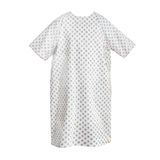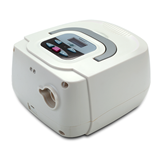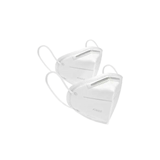Federal Assistant Minister for Health, Dr David Gillespie, said considering Australia has one of the highest rates of obesity in the world, people must be encouraged to eat a more balanced diet and the government's Health Star Rating System on packaged foods offers a quick and easy guide to help them make informed choices.
"With more than 30 years' experience as a gastroenterologist and consultant specialist physician, I want to spread the word that our growing rate of obesity is primarily due to poor diet often associated with large intakes of energy-dense foods, with high saturated fat, sugar and/or salt content, and low intakes of nutrient-dense foods, such as vegetables, fruit and wholegrain cereals and that is why the Coalition Government is contributing funds towards a new national public awareness campaign," Dr Gillespie said.
"I have always suggested to my patients when discussing diet in the past that fresh is best. If you are eating food that you pull out of the ground or off a tree, is harvested and unprocessed or runs, jumps, swims or flies, it is generally pretty healthy. If you get it out of a shiny silver pack or a cardboard box, it has usually been processed.
"The Health Star Rating system is designed to help consumers make informed choices about the packaged foods they purchase and this new public awareness campaign, which will include social media and advertising, is about informing the public of what this rating system is about and what it actually means.
"For example, it is really important to use the HSR system the way it was intended," Dr Gillespie said.
"The Health Stars help you to choose between different products within a category (yogurts with yogurts, breakfast cereals with breakfast cereals) and not between categories. It doesn't make sense to compare, for example, smoked salmon with a breakfast cereal, as that was never intended.
"The HSR system helps take some of the guess work out of shopping and helps consumers to make healthier choices when it comes to buying packaged food."
The HSR system uses stars, from a half to five stars to provide an at-a-glance overall rating of packaged and processed food. More than 115 food companies are now displaying stars on more than 5,500 food products and participation is growing rapidly.
"This new campaign is one part of an overall effort that we must make in Australia to prevent the rise in obesity as diet-related chronic diseases, such as cardiovascular disease, diabetes and some cancers, are a major cause of death and disability in Australia, and their prevalence is steadily increasing," Dr Gillespie said.
"The Australian InstFederal Assistant Minister for Health, Dr David Gillespie, said considering Australia has one of the highest rates of obesity in the world, people must be encouraged to eat a more balanced diet and the government's Health Star Rating System on packaged foods offers a quick and easy guide to help them make informed choices.
"With more than 30 years' experience as a gastroenterologist and consultant specialist physician, I want to spread the word that our growing rate of obesity is primarily due to poor diet often associated with large intakes of energy-dense foods, with high saturated fat, sugar and/or salt content, and low intakes of nutrient-dense foods, such as vegetables, fruit and wholegrain cereals and that is why the Coalition Government is contributing funds towards a new national public awareness campaign," Dr Gillespie said.
"I have always suggested to my patients when discussing diet in the past that fresh is best. If you are eating food that you pull out of the ground or off a tree, is harvested and unprocessed or runs, jumps, swims or flies, it is generally pretty healthy. If you get it out of a shiny silver pack or a cardboard box, it has usually been processed.
"The Health Star Rating system is designed to help consumers make informed choices about the packaged foods they purchase and this new public awareness campaign, which will include social media and advertising, is about informing the public of what this rating system is about and what it actually means.
'For example, it is really important to use the HSR system the way it was intended," Dr Gillespie said.
"The Health Stars help you to choose between different products within a category (yogurts with yogurts, breakfast cereals with breakfast cereals) and not between categories. It doesn't make sense to compare, for example, smoked salmon with a breakfast cereal, as that was never intended.
"The HSR system helps take some of the guess work out of shopping and helps consumers to make healthier choices when it comes to buying packaged food."
The HSR system uses stars, from a half to five stars to provide an at-a-glance overall rating of packaged and processed food. More than 115 food companies are now displaying stars on more than 5,500 food products and participation is growing rapidly.
"This new campaign is one part of an overall effort that we must make in Australia to prevent the rise in obesity as diet-related chronic diseases, such as cardiovascular disease, diabetes and some cancers, are a major cause of death and disability in Australia, and their prevalence is steadily increasing," Dr Gillespie said.
"The Australian Institute of Health and Welfare (AIHW) estimates that poor diets, and their related health impacts, cost Australia $5 billion each year, which includes direct health-care costs of $3 billion, In addition, overweight and obesity (of which poor diet and physical inactivity are causal factors) costs a further $11.6 billion per year."itute of Health and Welfare (AIHW) estimates that poor diets, and their related health impacts, cost Australia $5 billion each year, which includes direct health-care costs of $3 billion, In addition, overweight and obesity (of which poor diet and physical inactivity are causal factors) costs a further $11.6 billion per year."
- Suppliers
- New to MedicalSearch? Book a Demo
- Advertise with us
- Login
- Email Marketing
- Buyers
- Get Quotes
- Articles & Ideas
- Login
- Subscribe to newsletter
- My Details
- Get Quotes
- Accident & Emergency Care
- Aged Care & Disability
- Anaesthesia & Respiratory Care
- Beauty & Wellness
- Cardiology & Cardiac Surgery
- Commercial Cleaning & Laundry Supplies
- Dental Care & Oral Surgery
- Diagnostic Instruments & Medical Imaging
- Disinfection & Sterilisation
- ENT & Audiology
- Gynaecology & Obstetrics
- Homecare & Consumer Medical
- Hospital Equipment & Supplies
- Intensive Care Unit
- Laboratory & Pathology
- Medical Apparel
- Medical Devices & Products
- Medical Fridges & Freezers
- Medical Storage & Filing
- Medical Waste Management
- Optometry & Ophthalmology
- Orthopaedics & Podiatry
- Paediatrics & Neonatology
- Patient Monitoring & Management
- Physiotherapy & Rehabilitation
- PPE & Infection Control
- Single Use Medical Consumables
- Surgical Tools & Supplies
- Treatment Beds, Tables & Couches
- Veterinary Equipment
- Wheelchairs & Mobility Aids
- Get Quotes
- Accident & Emergency Care
- Aged Care & Disability
- Anaesthesia & Respiratory Care
- Beauty & Wellness
- Cardiology & Cardiac Surgery
- Commercial Cleaning & Laundry Supplies
- Dental Care & Oral Surgery
- Diagnostic Instruments & Medical Imaging
- Disinfection & Sterilisation
- ENT & Audiology
- Gynaecology & Obstetrics
- Homecare & Consumer Medical
- Hospital Equipment & Supplies
- Intensive Care Unit
- Laboratory & Pathology
- Medical Apparel
- Medical Devices & Products
- Medical Fridges & Freezers
- Medical Storage & Filing
- Medical Waste Management
- Optometry & Ophthalmology
- Orthopaedics & Podiatry
- Paediatrics & Neonatology
- Patient Monitoring & Management
- Physiotherapy & Rehabilitation
- PPE & Infection Control
- Single Use Medical Consumables
- Surgical Tools & Supplies
- Treatment Beds, Tables & Couches
- Veterinary Equipment
- Wheelchairs & Mobility Aids
Trusted by 520,000 Australian medical buyers
Buyers
- Discover products & solutions
- Login
- Subscribe To Newsletter
- Browse All Products
- Read Articles
Suppliers
Advertise
- Promote your products & solutions
- New to MedicalSearch? Book a Demo
- Login / Forgot Password
- Advertise Your Products
- Success Stories
- Email Marketing
- Suppliers
- Advertise with us
- Login
- Email Marketing
- Buyers
- Get Quotes
- Articles & Ideas
- Login
- Subscribe to newsletter
- My Details
Get Quotes
- Accident & Emergency Care
- Aged Care & Disability
- Anaesthesia & Respiratory Care
- Beauty & Wellness
- Cardiology & Cardiac Surgery
- Commercial Cleaning & Laundry Supplies
- Dental Care & Oral Surgery
- Diagnostic Instruments & Medical Imaging
- Disinfection & Sterilisation
- ENT & Audiology
- Gynaecology & Obstetrics
- Homecare & Consumer Medical
- Hospital Equipment & Supplies
- Intensive Care Unit
- Laboratory & Pathology
- Medical Apparel
- Medical Devices & Products
- Medical Fridges & Freezers
- Medical Storage & Filing
- Medical Waste Management
- Optometry & Ophthalmology
- Orthopaedics & Podiatry
- Paediatrics & Neonatology
- Patient Monitoring & Management
- Physiotherapy & Rehabilitation
- PPE & Infection Control
- Single Use Medical Consumables
- Surgical Tools & Supplies
- Treatment Beds, Tables & Couches
- Veterinary Equipment
- Wheelchairs & Mobility Aids
Get Quotes
- Accident & Emergency Care
- Aged Care & Disability
- Anaesthesia & Respiratory Care
- Beauty & Wellness
- Cardiology & Cardiac Surgery
- Commercial Cleaning & Laundry Supplies
- Dental Care & Oral Surgery
- Diagnostic Instruments & Medical Imaging
- Disinfection & Sterilisation
- ENT & Audiology
- Gynaecology & Obstetrics
- Homecare & Consumer Medical
- Hospital Equipment & Supplies
- Intensive Care Unit
- Laboratory & Pathology
- Medical Apparel
- Medical Devices & Products
- Medical Fridges & Freezers
- Medical Storage & Filing
- Medical Waste Management
- Optometry & Ophthalmology
- Orthopaedics & Podiatry
- Paediatrics & Neonatology
- Patient Monitoring & Management
- Physiotherapy & Rehabilitation
- PPE & Infection Control
- Single Use Medical Consumables
- Surgical Tools & Supplies
- Treatment Beds, Tables & Couches
- Veterinary Equipment
- Wheelchairs & Mobility Aids
Trusted by 520,000 Australian medical buyers











